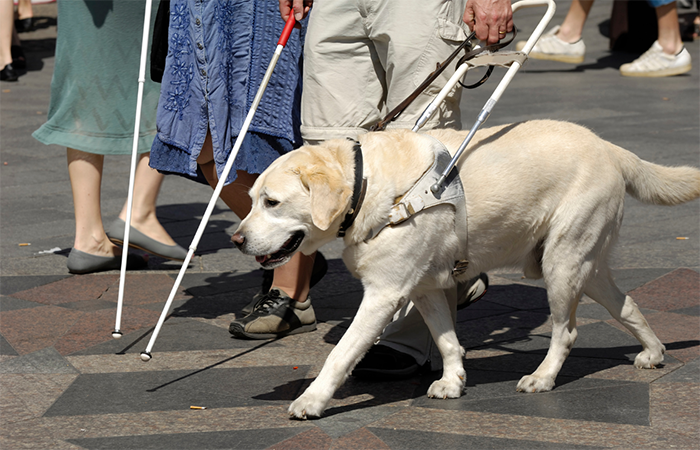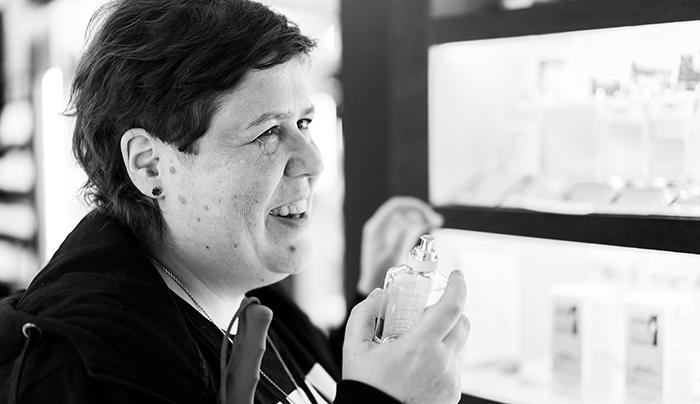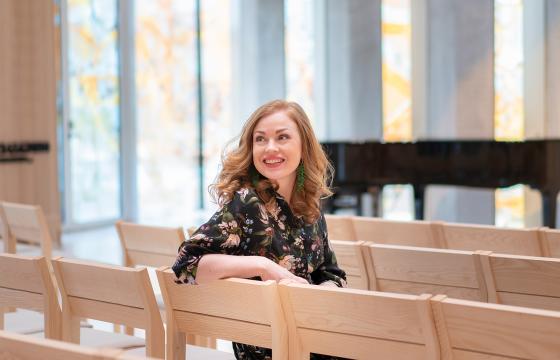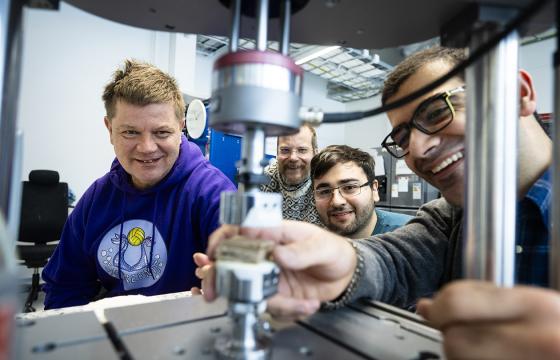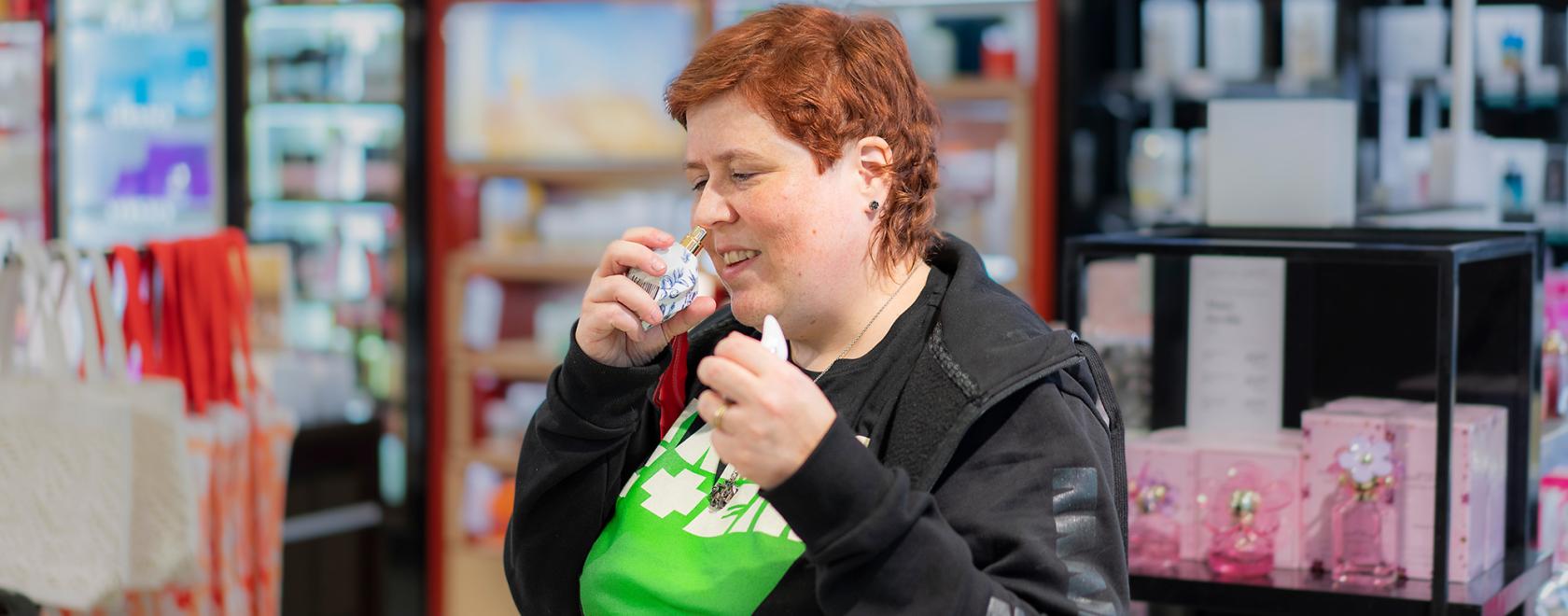
Text: Essi Kähkönen
Photography: Petri Summanen
Here comes Papu, a two-year-old Labrador retriever who is enjoying the life of Riley in a lovely family. Until he hears a terrible rumour: he is about to be sent off to guide dog school!
We find out that Papu’s handler will be a young lady by the name of Vilma. Vilma is off to study in a town in eastern Finland called Savonlinna, and Papu is expected to go with her. Papu is thrilled, as he expects raucous student parties and endless socialising. He is sorely disappointed when Vilma turns out to be the sober, introverted type.
But things can always change, and Papu intends to achieve just that…
The focus is not on blindness
That is how author and translator Jonna Heynke, MA, describes the joint adventures of Papu and Vilma, a work of fiction she intends to write with the help of a one-year grant awarded by the Finnish Cultural Foundation.
Having been blind from birth, Heynke knows what she is writing about. She received her first guide dog a couple of decades ago and is currently searching for her latest assistant.
“My guide dogs have allowed me to have adventures and live life to the full. The great work that these four-legged assistants do deserves recognition in the field of literature. At the same time, I will be able to give an idea of the world of the visually impaired to the seeing, many of whom know very little about it,” Heynke says.
With her book, Heynke hopes to shake off some of the outdated stereotypes associated with congenital blindness in particular.
“Looking for stories by congenitally blind authors, you almost exclusively come across autobiographical works that focus entirely on the author’s disability. I, too, have had requests for such a book, and many of my manuscripts have been returned by publishers with the comment ‘write about being blind’. Papu the guide dog’s memoirs are a kind of compromise: there is a lot about blindness in the book, but it is not the focal point of the story,” Heynke explains.
Permission to laugh
In this fictional memoir, the boisterous and cheeky guide dog Papu tries to invigorate his sedate handler, Vilma, occasionally managing to tempt her off the straight and narrow.
“The purpose of the book is to break down old-fashioned ideas about the visually impaired using humour, sometimes of the crude kind. Contrary to what many people believe, blindness does not equate to a life sentence and the blind do not need pity or commiseration. You have permission to laugh at blunders arising from people’s visual impairment,” Heynke says.
Although it is a work of fiction, her book will have an element of truth.
“It’s true for example that my first guide dog, Pontus, would drag me by force to the beer aisle of any shop, however large or small. And there was me at the age of twenty, hardly even having tasted beer, let alone any strong stuff.”
Smells come alive
This being the memoir of a canine, it will have an emphasis on scents and smells. Papu’s nose will lead the pair to all sorts of places, from Vilma’s favourite perfume department to the liquor store world of whisky and tequila. Even with a stuffy nose, Papu will not fail to guide Vilma to the gynaecologist’s door at the health centre.
At the pharmacy, Papu draws in the wonderful scents of vitamin B pills, antibiotics and nitrates, and ends up being petted by the pharmacist, even though this is a big no for assistance dogs.
“I see the pharmacist has a ball-less cat at home,” Papu deduces with his nose.
Aural perception is also important for a dog, as it is for a visually impaired person, but there is no need to expose one’s sensitive ears to just any kind of racket. Papu threatens to go on strike when Vilma intends to have him listen to the caterwauling at the Savonlinna Opera Festival.
“One has to draw a line somewhere,” Papu exclaims!
Foreign travel facilitated by grant
In spite of his rebellious nature, Papu grows up to a fine seeing-eye dog. Vilma and Papu learn routes to important destinations, such as the university and the supermarket. They practise using stairs, doorways and pedestrian crossings. Vilma is sure to praise Papu for a job well done.
What has the significance of guide dogs been in Heynke’s own life?
“Huge. The value of an assistance dog cannot be measured in money. My guide dogs have become a part of me: at home they are beloved pets and in the outside world they are not only my guides but also facilitators of social interactions. I enjoy people coming up to me to ask about my dog. Lacking as I am in the eye contact that is integral to human interaction, a guide dog helps in this respect, too,” Heynke says.
Papu and Vilma’s story is still being written, and future chapters will see them for instance visiting Amsterdam with a group of students. Heynke intends to travel there herself this year, to gather material. She wants to experience at least the Anne Frank House, the tulips and a canal cruise.
“I will really benefit from the Finnish Cultural Foundation’s grant, because as a blind person I cannot learn from videos and pictures: I must discover the experiences myself. Having Papu as a character will allow me to reveal how wonderful and exciting the world can really be. All you have to do is open your eyes and set out into it.”
Author and translator Jonna Heynke received a EUR 28,000 grant for writing the memoirs of a guide dog in 2023.
